Hermann Göring
출생 : 1893-01-12, Rosenheim, Germany
사망 : 1946-10-15
약력
Hermann Wilhelm Göring (12 January 1893 – 15 October 1946) was a German politician, military leader and convicted war criminal. He was one of the most powerful figures in the Nazi Party, which ruled Germany from 1933 to 1945.

Self - Politician (archive footage)
In 1945, two young American soldiers, brothers Budd and Stuart Schulberg, are commissioned to collect filmed and recorded evidence of the horrors committed by the infamous Third Reich in order to prove Nazi war crimes during the Nuremberg trials (1945-46). The story of the making of Nuremberg: Its Lesson for Today, a paramount historic documentary, released in 1948.
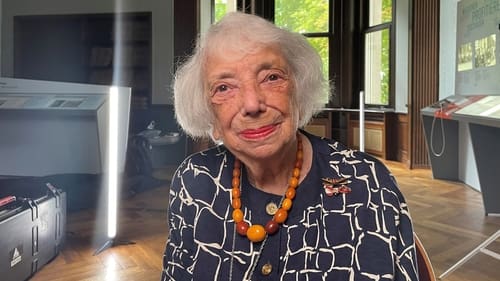
Self (archive footage)
It was arguably the deadliest conference in human history. The topic: plans to murder 11 million Jews in Europe. The participants were not psychopaths, but educated men from the SS, police, administration and ministries. The invitation to the meeting at Wannsee came from Reinhard Heydrich, head of the Reich Security Main Office. The Wehrmacht's campaigns of conquest in Eastern Europe marked the beginning of the systematic murder of Jews in Poland and the Soviet Union. In mid-September 1941, Hitler made the decision to deport all Jews from Germany to the East. Although there had been transports before, Hitler's order represented a further escalation in the murderous decision-making process. Persecution and discrimination had been part of everyday life since 1933. But as a result, the living conditions for the Jews in the Third Reich became even more difficult, among them the Berlin Jew Margot Friedländer, born in 1921, and the Chotzen family.

Self - Politician (archive footage)
Germany, 1929. Helmut Machemer and Erna Schwalbe fall madly in love and marry in 1932. Everything indicates that a bright future awaits them; but then, in 1933, Adolf Hitler and the Nazi Party rise to power and their lives are suddenly put in danger because of Erna's Jewish ancestry.

Self - Politician (archive footage)
For more than a decade, Reichsmarschall Hermann Göring, Adolf Hitler's right-hand man during the infamous Third Reich, assembled a collection of thousands of works of art that were meticulously catalogued. Why did he steal entire collections, mainly those belonging to Jewish families, ultimately victims of the Shoah? Was it to satisfy his aesthetic ambitions and his insatiable personal greed or was he acting in the common interest of the Nazi rulers?

Self (archive footage) (uncredited)
Countless people around the world know the pictures from Leni Riefenstahl's films, even if they have not seen them in their entirety. The work of the German director has burned itself into the collective memory. Even decades after the end of the Nazi era, she showed no remorse and presented herself as an apolitical, naive follower of the Nazi criminal regime. Her artistic service for the cinema was always recognized. But book author Nina Gladitz shows after decades of research that Hitler's favorite filmmaker was not only a follower, but also a perpetrator during the Third Reich, who instrumentalized other filmmakers such as the brilliant cinematographer Willy Zielke in order to gain fame for herself.

Self (archive footage)
This is the story of an incredible rise to power, the most comprehensive documentary on Hermann Goering ever made. He was a man of many faces: vain, ambitious, more brutal than any other of Hitler's minions, yet the most popular Nazi official of all, at times even more popular than Hitler himself. He embodied the jovial side of the Third Reich. Yet the same man who organised dissolute bacchanals also founded the Gestapo, set up the first concentration camps, and had his own comrades murdered in the purge of 1934. These unique personal records form the largest and most important single film find from the Nazi era in past years.
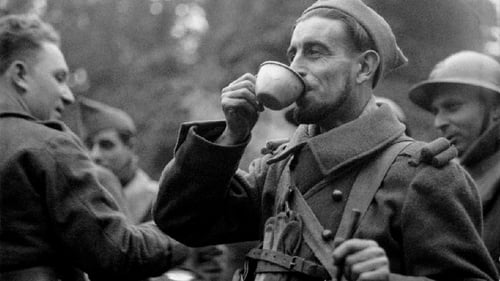
Self - Politician (archive footage)
September 3rd, 1939. Britain and France declare war on Nazi Germany, only two days after the Wehrmacht invades Poland. This day, the sad date when the fate of the world changed forever, the Phoney War began: eight months of uncertainty, preparations, evacuations and skirmishes.

Self (archive footage) (uncredited)
How could Hitler and Stalin, sworn ideological enemies, come to a secret pact in 1939? The captivating and detailed story of the diplomatic fiasco that led to the signing of the Nazi-Soviet pact and its devastating consequences.
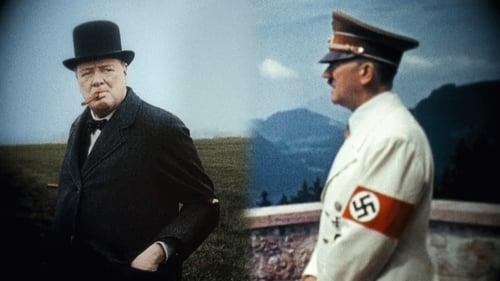
Self - Politician (archive footage)
Winston Churchill, one of the most revered men of the twentieth century. Adolf Hitler, one of the most hated leaders in contemporary history. Between 1940 and 1945, these two enormously contradictory personalities faced each other in both politics and war. A clash of giants whose story begins in the trenches of the World War I and ends with the debacle of the World War II.
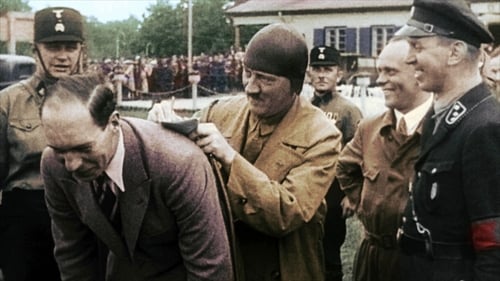
Self (archive footage)
How Germany was when its people entered the nightmare of World War II? Despair and fear lead a hungry population to follow the chilling call of just one man to world domination. A real-life horror story, an ominous tale of violence and deception, which takes place from 1919 to 1934. (Entirely made up of restored, colorized archival footage.)

Self (archive footage)
During the worst days of World War II, the British government asks the mathematician Alan Turing to unravel the mysteries of the German Enigma encryption machine, an impossible task to accomplish without the invaluable information that Hans-Thilo Schmidt, a disenchanted but greedy German citizen, had been handing over to the French secret services since 1931.
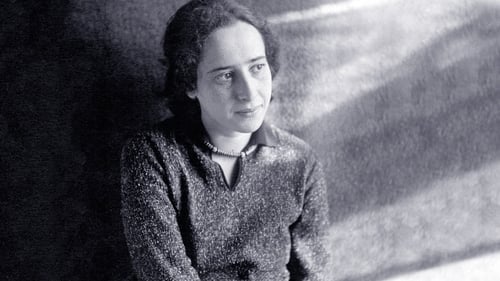
Self - Politician (archive footage)
The life and work of German political philosopher of Jewish descent Hannah Arendt (1906-75), who caused a stir when she coined a subversive concept, the banality of evil, in her 1963 book on the trial of Nazi war criminal Adolph Eichmann (1906-62), held in Israel in 1961, which she covered for the New Yorker magazine.

Through previously undiscovered private letters, photos and diaries that were found in the Himmler family house in 1945, the "The Decent One" exposes a unique and at times uncomfortable access to the life and mind of the merciless "Architect of the Final Solution" Heinrich Himmler.
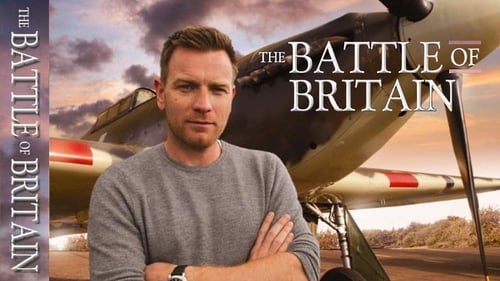
Self (archive footage)
Seventy years on, brothers Colin and Ewan McGregor take viewers through the key moments of the Battle of Britain, when 'the few' of the RAF faced the might of the Nazi Luftwaffe. As they fly historic planes, meet the veterans, explore the tactics and technology, Colin and Ewan discover the importance of the Battle and the surviving legacy of the 1940's campaign for the modern RAF.
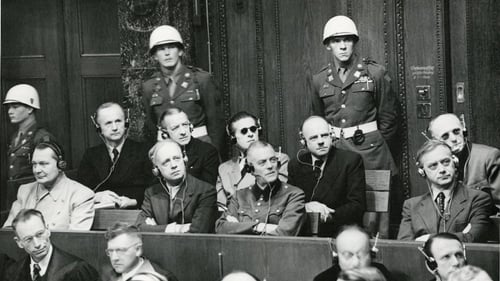
Himself
The documentary of the Nuremberg War Trials of 21 Nazi dignitaries held after World War II.
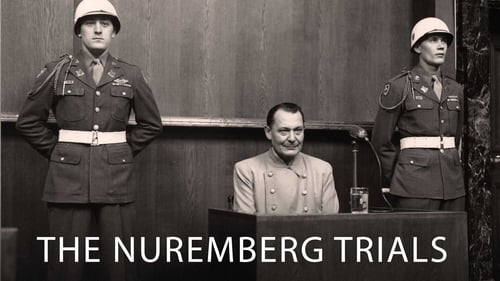
Self (archival footage)
One journalist described it as a chance "to see justice catch up with evil." On November 20, 1945, the twenty-two surviving representatives of the Nazi elite stood before an international military tribunal at the Palace of Justice in Nuremberg, Germany; they were charged with the systematic murder of millions of people. The ensuing trial pitted U.S. chief prosecutor and Supreme Court judge Robert Jackson against Hermann Göring, the former head of the Nazi air force, whom Adolf Hitler had once named to be his successor. Jackson hoped that the trial would make a statement that crimes against humanity would never again go unpunished. Proving the guilt of the defendants, however, was more difficult than Jackson anticipated. This American Experience production draws upon rare archival material and eyewitness accounts to recreate the dramatic tribunal that defines trial procedure for state criminals to this day.
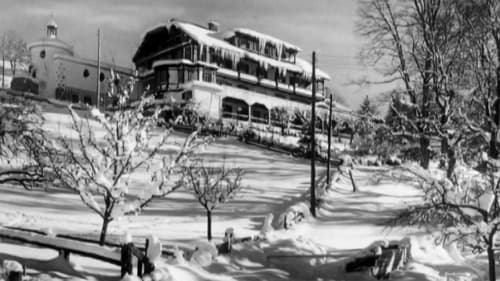
Adolf Hitler spent over 1,000 days on the Obersalzberg, his mountain holiday refuge near Berchtesgaden. It was there he made his decisions about war and destruction. The producers, through special permits, explore the abandoned concrete tunnels in search of the relics of history of Hitler’s mountain and to tell almost forgotten tales of the people who lived there, high up in the shadow of power.
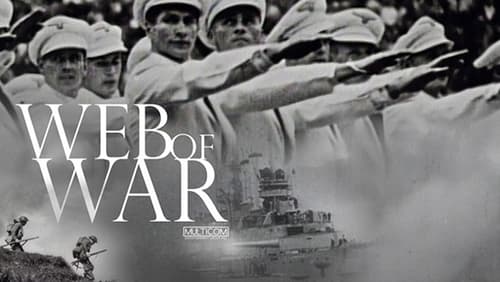
Self (archive footage)
The stories of the battles that brought together a Polish cavalry officer, a Canadian captain, and a polish underground member are told by the very same Canadians who survived them.

Self - at Nuremberg Trials (archive footage)
The mass murder of Jewish people by the Nazi regime is chronicled, with a warning that anti-Semitism is on the rise and the events of the Holocaust could happen again. The history of European Jewish culture and events before and during the Holocaust are seen in newsreels, photographs, and animated segments. The words of the victims of the era are read, and footage from the liberation os a concentration camp is shown.

Self (archive footage)
This film is a kind of anthology about Vienna, from the invention of film to the present day. The aim is to break down the usual clichéd "image of Vienna" such as that found in the traditional "Vienna Film" by juxtaposing documentary footage, newly shot material and subjective sequences created by various artists. Individual, self-contained sections of the film gain new meaning within the context of historical material. Familiar sites appear estranged when edited together with historical scenes. Other scenes appear like a persiflage or satirical. The film does not incorporate any commentary whatsoever. It is a collage of diverse materials aimed at conveying a distanced image of Vienna to the viewer
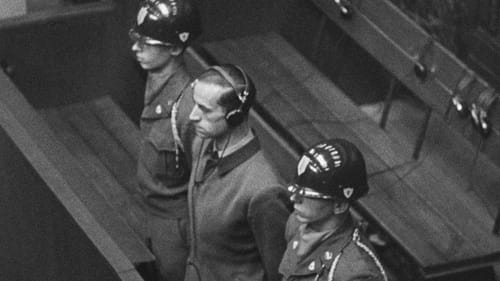
Self (archive footage)
This exceptional, disturbing and thought-provoking documentary compares the atrocities committed by the Nazis as revealed during the Nuremberg trials to those committed by the French in Algeria and those done by the Americans in Vietnam. The four hour epic questions the right of any country to pass self-righteous moral judgements upon the actions of another country.

Self (archive footage) (uncredited)
Documents the major trial of the Nazi war criminals and the violent acts that they were accused of.

Self (archive footage) (uncredited)
Documentary compiled from archives and accompanied by a poet's commentary, shows the sweep of modern Italian history from 1911 to 1961, centering on the conditions leading to Fascism and the post-WWII reaction to the Fascist experience.
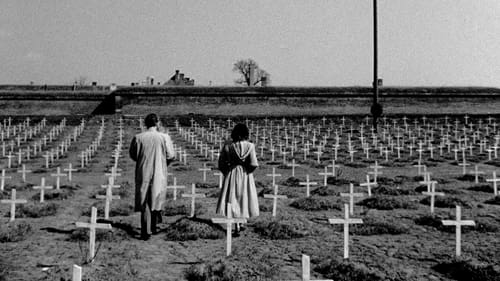
Self - Politician (archive footage)
Prague, during World War II. Hana Kaufmann, a Jewish ophthalmologist, marries Dr. Antonín Bureš, a Christian man. When her family is sent to the Theresienstadt concentration camp, their romance turns into a struggle for survival.
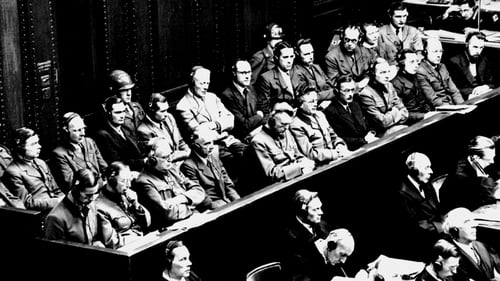
Self
How, in November 1945, after the end of the World War II and the fall of the Third Reich, the international prosecutors participating in the first Nuremberg trial —formally, the International Military Tribunal— built their case against the top Nazi war criminals using the films and records produced by the own regime, obsessed with documenting everything in its long path of infamy and crime.

Self (archive footage)
An account of Adolf Hitler's rise and fall, his relationship with Eva Braun and their days of leisure at the Berghof, their Bavarian residence.

(archive footage)
This short traces the cooperation between nations that resulted in the development of atomic weapons, and how they were used to end World War II. It also makes the case for cooperation between nations in order that the further development of nuclear weapons will not spiral out of control and endanger the safety of the world.
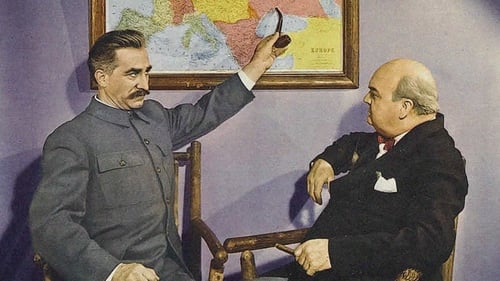
Self (archive footage) (uncredited)
Ambassador Joseph Davies is sent by FDR to Russia to learn about the Soviet system and returns to America as an advocate of Stalinism.

Self
The center piece of the this propaganda film is Mussolini's visit to the the German Olympic Stadium in 1937, where he was greeted that 1 million people jammed into the stadium to hear him speak. Also features speeches in nearby Mayfield, various meetings that Mussolini had with prominent members of the Nazi party in Munich, Mussolini's watching German Army field exercises, and, with Hermann Göring, reviewing military parades.

Self
Said to pick up where "Triumph of the Will" left off, this film showcases highlights of the Nazi Party rallies in Nüremberg in 1936 and 1937. The main focus of the film begins with extended footage of the Gothic splendor of Nüremberg from the air, Hitler's arrival at the airbase, his motorcade into the city, and the ensuing ceremonies. Other, much more propagandistic elements, are edited in; they include: past Nazi party marches and rallies, parachute drops, Wehrmacht exercises in the Zeppelin fields, random military formation night rallies and random shots of massed crowds, fireworks, torch lit marches, even live explosions.
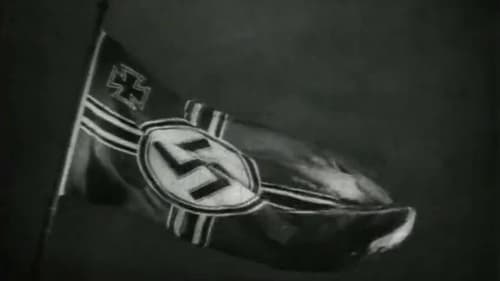
Self
Filming of the performance show the Deutsche Wehrmacht (German Army) made during the Reichsparteitag of the NSDAP in Nurnberg 1935. Showing the readiness and the will of the newly build army. The third documentary directed by Leni Riefenstahl.
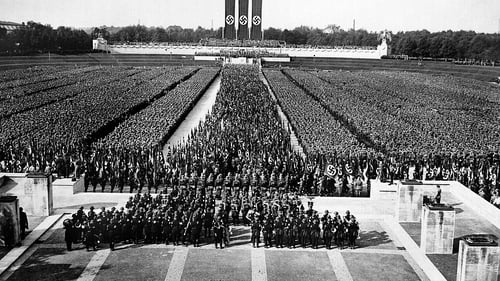
Self
새카맣게 모인 군중들 위로 아돌프 히틀러가 탄 비행기의 그림자가 드리우는 장면을 시작으로 4일동안의 일정이 시작된다. 비행기에서 내린 히틀러가 호텔로 가는 도중 군중들은 열광적으로 환호한다. 2일째가 되면 본격적으로 전당대회가 시작된다. 루돌프 헤스의 개막사로 문을 연 전당대회에는 파울 요제프 괴벨스, 알프레드 로젠베르크, 한스 프랑크 등 나치 간부의 모습이 보인다. 히틀러는 격정적인 연설을 펼친다. 세번째 날은 히틀러 소년단의 집회 장면으로 시작된다. 히틀러는 소년들을 향해 연설을 하고 소년들은 진심어린 환호를 보낸다. 이날 밤 히틀러는 횃불을 밝혀놓은 가운데 나치당 하위 간부들에게 연설을 한다. 4일째에는 전당대회의 메인 행사가 열린다. 히틀러는 친위대들에 둘러싸인 채 수십만명의 군중 앞에 등장한다. 곧이어 새로운 당의 깃발이 선보이고 히틀러는 마지막 연설을 시작한다. 그는 “충성스러운 독일인은 모두 국가사회주의자가 될 것”이라는 선언을 한다. 수십만이 히틀러에게 경례를 붙이는 가운데 거대한 나치 깃발이 보여진다.
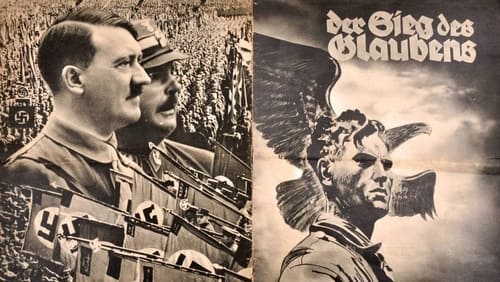
Self
The earliest Nazi propaganda film by Leni Riefenstahl, best known for her follow-up Triumph of the Will. Victory follows the Fifth Nazi Party Rally (Nuremberg, 30 August–3 September 1933) and shows the then close relationship between Adolf Hitler and Ernest Rõhm. Ten months later, on 1 July 1934, during the Night of the Long Knives, Hitler had Rõhm shot, which not only had the Sturmabteilung threat eliminated but also concreted Hitler's supremacy. Because Hitler sought to erase Rõhm from German history, he ordered all known copies of the film destroyed but one resurfaced in 1980s East Germany.

























